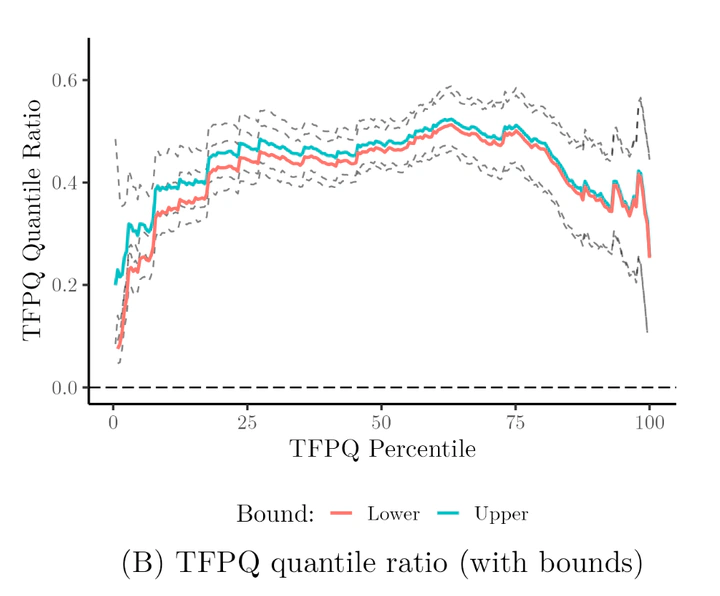The Aggregate Costs of Political Connections
 TFPQ quantile ratio connected vs non-connected
TFPQ quantile ratio connected vs non-connectedThis paper quantifies the aggregate costs of political connections using a general equilibrium model in which politically connected firms benefit from output subsidies and endogenously spend resources on rent-seeking activities. The model is structurally estimated using rich firm-level data for the Indonesian manufacturing sector and a firm-level measure of political connectedness based on a natural experiment from the authoritarian rule of Suharto at the end of the 1990s. A major innovation is to flexibly identify the distribution of output subsidies from relative total factor productivity (TFPQ) distributions across connected and non-connected firms. While only 1.3% of firms are connected, I find that connections impose large costs, with permanent consumption losses of 7.4% and output losses of 2.7%. 2/3 of costs are driven by too much dispersion in subsidies across connected firms, while 1/3 are driven by an excessive level of subsidies.